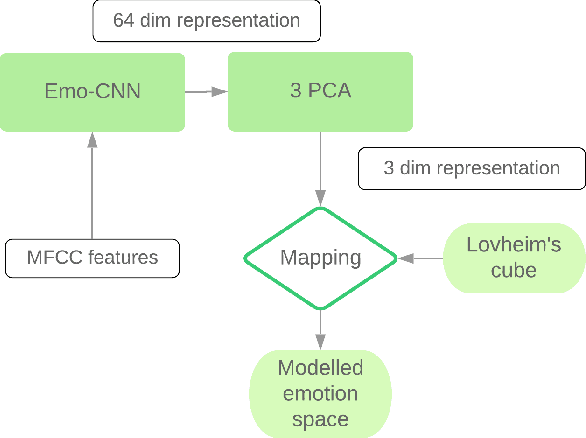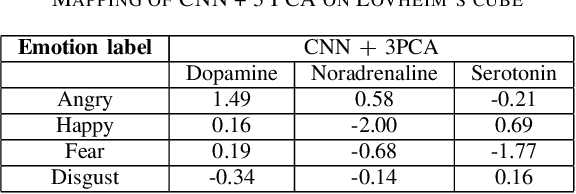Emo-CNN for Perceiving Stress from Audio Signals: A Brain Chemistry Approach
Paper and Code
Jan 08, 2020



Emotion plays a key role in many applications like healthcare, to gather patients emotional behavior. There are certain emotions which are given more importance due to their effectiveness in understanding human feelings. In this paper, we propose an approach that models human stress from audio signals. The research challenge in speech emotion detection is defining the very meaning of stress and being able to categorize it in a precise manner. Supervised Machine Learning models, including state of the art Deep Learning classification methods, rely on the availability of clean and labelled data. One of the problems in affective computation and emotion detection is the limited amount of annotated data of stress. The existing labelled stress emotion datasets are highly subjective to the perception of the annotator. We address the first issue of feature selection by exploiting the use of traditional MFCC features in Convolutional Neural Network. Our experiments show that Emo-CNN consistently and significantly outperforms the popular existing methods over multiple datasets. It achieves 90.2% categorical accuracy on the Emo-DB dataset. To tackle the second and the more significant problem of subjectivity in stress labels, we use Lovheim's cube, which is a 3-dimensional projection of emotions. The cube aims at explaining the relationship between these neurotransmitters and the positions of emotions in 3D space. The learnt emotion representations from the Emo-CNN are mapped to the cube using three component PCA (Principal Component Analysis) which is then used to model human stress. This proposed approach not only circumvents the need for labelled stress data but also complies with the psychological theory of emotions given by Lovheim's cube. We believe that this work is the first step towards creating a connection between Artificial Intelligence and the chemistry of human emotions.
 Add to Chrome
Add to Chrome Add to Firefox
Add to Firefox Add to Edge
Add to Edge